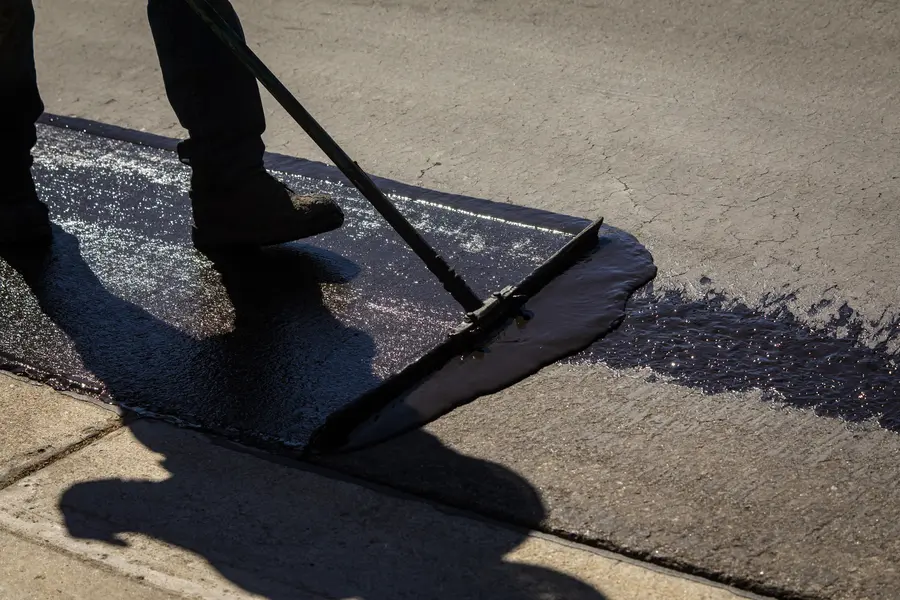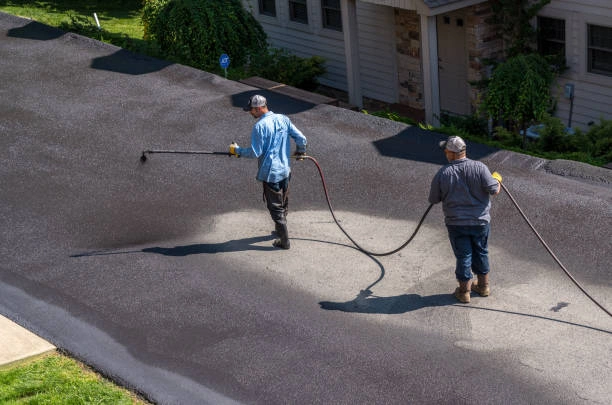Shielding Surfaces From the Elements
The weather can be harsh on surfaces, especially those made of asphalt. Rain, snow, and sun each have a way of wearing down these materials over time. Protecting your asphalt involves more than just regular cleaning. It requires an effective shield that preserves its integrity. This is where sealing plays a crucial role. By understanding the impact of weather on asphalt and how to combat it, you ensure its longevity and performance.

Why Protection Is Needed
Asphalt faces constant threats from various weather conditions. Rainwater can seep into cracks, leading to erosion underneath the surface. During winter, trapped water freezes and expands, making these cracks even bigger. The sun’s UV rays also contribute by breaking down the binders in the asphalt, causing it to become brittle and prone to cracking. Without protection, these issues compound over time, resulting in costly repairs.
The Role of Sealing
Applying a sealant provides an essential barrier against these elements. Asphalt sealing acts as a protective layer, preventing water penetration. It also reflects UV rays, reducing the damage caused by sunlight. This dual action significantly reduces the risk of cracking and potholes forming over time. The process effectively prolongs the life of your surfaces, saving money on future maintenance.

Key Benefits You Can Expect
Choosing to seal your asphalt offers several advantages beyond weather protection. First, it enhances the appearance of driveways and parking lots by creating a smooth, black finish. Second, it increases surface durability, making it resistant to oil spills and other chemicals. Finally, it adds value to your property by maintaining a well-kept look that’s appealing to visitors or potential buyers.
Tackling Common Weather Challenges
Weather-related damage doesn’t only affect large areas but also small-scale installations like walkways. Whether it’s heavy rain or intense sunlight, all types of asphalt installations face similar challenges. Regular inspections for signs of wear, such as discoloration or minor cracks, are vital. Addressing these early with sealing prevents further deterioration.
Steps to Effective Sealing
To maximize the benefits of sealing, follow these steps:
- Clean the surface thoroughly before applying sealant
- Repair any existing cracks or holes
- Choose a high-quality sealant suited for your specific needs
- Apply the sealant evenly across the surface
- Allow ample drying time before use
Expert Recommendations for Maintenance
For lasting results, experts recommend resealing every two to three years. This frequency ensures continual protection against environmental hazards. Also, promptly addressing any visible wear between resealings helps maintain surface quality. Use professional services for accurate application and advice tailored to your area’s climate conditions.
Economic Considerations
Investing in sealing upfront may seem daunting due to costs, but it offers significant savings long term. Preventative maintenance through sealing circumvents expensive repairs by extending the lifespan of your asphalt surfaces. Additionally, well-maintained surfaces often reduce liability risks associated with slips or falls.
Your Next Steps With Protection Services
Now that you understand the importance of protecting your asphalt from weather damage, consider implementing regular sealing as part of your maintenance routine. For reliable service in Perris, CA, contact us at (951) 590-4224. At Aim Construction, we provide expert assistance tailored to your unique needs. Our team is ready to help you preserve your investment through comprehensive sealing solutions.